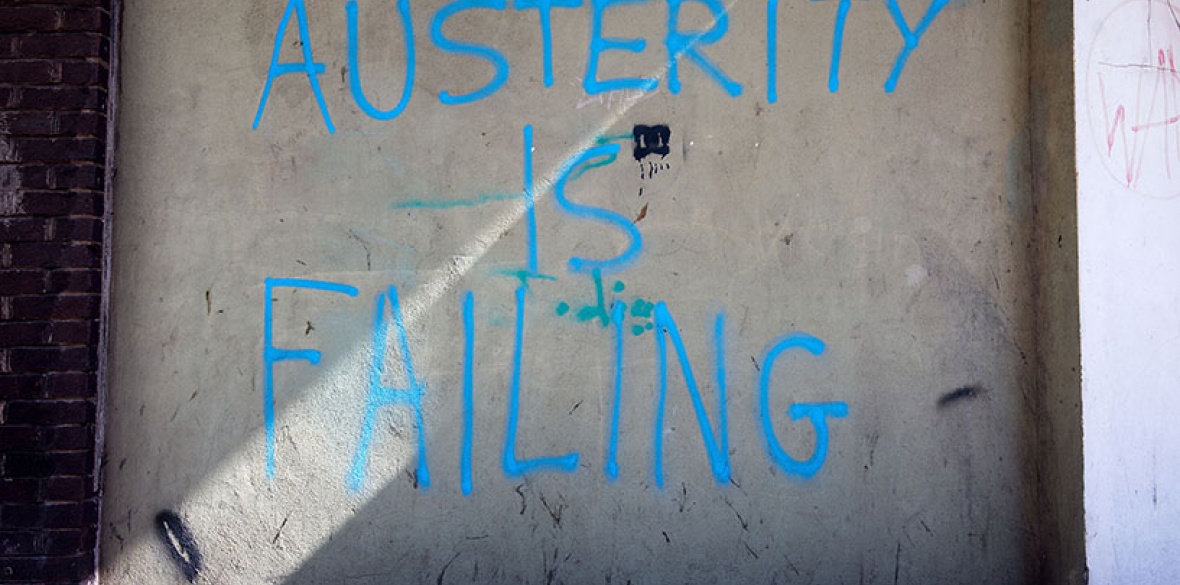This is the last article you can read this month
You can read more article this month
You can read more articles this month
Sorry your limit is up for this month
Reset on:
Please help support the Morning Star by subscribing here
WE FACE a crisis of political leadership in Wales. A hurricane has passed through the global economic system following the 2008 crash, the pandemic, and now the cost-of-living crisis, but our politicians failed to organise communities, trade unions, and social movements in mass opposition to austerity.
Wales has the highest rates of poverty and low pay in the UK, yet there are Welsh government ministers and senior councillors in Wales who have never ever supported a single strike or ever stood on a picket line with workers fighting for better wages.
Meanwhile there has been a Tory ideological project to shrink the local state to its bare bones by systematically withholding the funding needed to provide the local services considered normal in post-war Britain, so as to force cuts, privatisation and outsourcing.
Tragically Welsh government and councils have chosen to manage rather than challenge austerity. This means a conspiracy of silence over the level of damage done by austerity, because they are its local administrators.
They devote more energy to fighting communities to get the cuts through than fighting the Tories for the funding our communities need.
2010-23 is a unique period in post-war history of total surrender to central government attacks with no fightback. In the early 1970s, with the Housing Finance Act and the 1980s with the rate-capping rebellion, left-wing councils often themselves led local residents in opposition to the Tories, convened public meetings to sound the alarm about the threat to local communities from central government, organised anti-government protest marches, issued articles, leaflets and posters, and in a few instances even broke the law by refusing to implement the cuts.
Over the last 13 years, has the Welsh government or a single Welsh council convened even one public meeting to make the case to the public why austerity is a political choice, not a practical necessity? Or one protest march to demand the funding Wales needs? The political culture has been one of overwhelming passivity.
This is a UK-wide crisis. All devolved governments and local councils have been systematically starved of funding, yet there is not even a joint national campaign for funding.
Nor is there any strong regular organised intervention by Labour, Plaid, SNP and Green MPs at Westminster to highlight the savaging of local services by denial of central government funding.
In local elections the messaging by centre-left parties rarely centres the issue of austerity placing all local services under threat.
Annual rounds of budget cuts have been normalised. Each annual round of local budget cuts with no resistance has made it easy for the Tories to come back a year later for another chunk of the local state.
It almost seems utopian to call for a collective refusal by left-wing administrations to pass more budgets until the UK government provides the funding needed to properly deliver local services — but it shouldn’t be.
We are now heading towards round 14 of slashed budgets and years of austerity have deeply damaged public services. It is unacceptable for the people of Wales to suffer the terrible effects of another Tory government Budget.
What is now needed is an emergency needs-based financial review of all Welsh public services. This can establish what funding is necessary to restore service quality and targets, to meet both current needs and repair the damage, such as NHS waiting lists, and meet the real pay needs of the Welsh public sector.
With just over 80 per cent of Welsh funding coming from the UK Tory government, the question then is how can this allocation be increased to meet our needs?
The scale of funding needed to meet the needs of people in Wales cannot be found by using the tax powers currently available to the Welsh government.
The only option is to campaign and fight for an allocation that can meet people’s needs. With the Tory government deeply unpopular and in its final days, Welsh politicians should be playing a central role in building a mass campaign of extra-parliamentary action against the government.
The rising and collective opposition of striking workers both in and outside the public sector over the last 12 months provides a firm basis for a direct challenge.
Public-sector workers fighting for pay increases are already fighting the Tory Budget, and what the Welsh government and councils could be doing is supporting this challenge by taking action themselves.
With a Labour government on the horizon committed to more austerity and refusing to increase public spending, only by making austerity unworkable on the ground, through mass opposition, can we build the pressure on the UK government for real change.
After the 2008 crash, the left raised the slogan, “We Won’t Pay for the Crisis.” What does this mean? In any economic crisis the question is who foots the bill. Do we all pay in terms of cuts to our wages, benefits, pensions, public services, privatisation, rising prices, bills and rents? Or do we take action and make the rich and corporations pay and build a more equal, democratic society?







